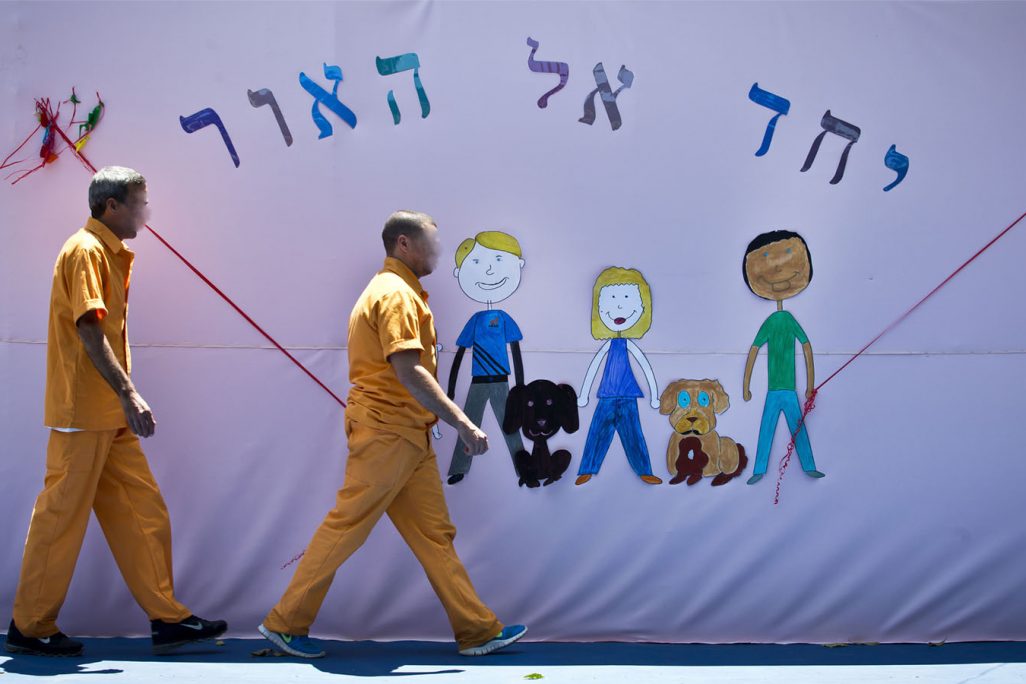
Is rehabilitation possible? What does it take for a criminal to repent? And how do the wardens in charge of the rehabilitation process keep our society safe? In the second article of our series on repentance we spoke with the people who, on a daily basis, find it in their hearts to believe that "Tshuva," change and rehabilitation, is possible. Even for the worst of criminals.
A few years ago, a particularly brutal crime shocked Israel. Kasso Tegania, 27, was convicted of raping a mentally-impaired woman. He broke into her home, raped her, physically abused her, broke her nose and eye socket, and cut off one of her fingers. The judges wrote about Tegania that “it’s almost impossible to comprehend the level of evil and brutality in his actions” and that “sadistic enjoyment is apparent from his actions.” He was sentenced to 19 years in prison.
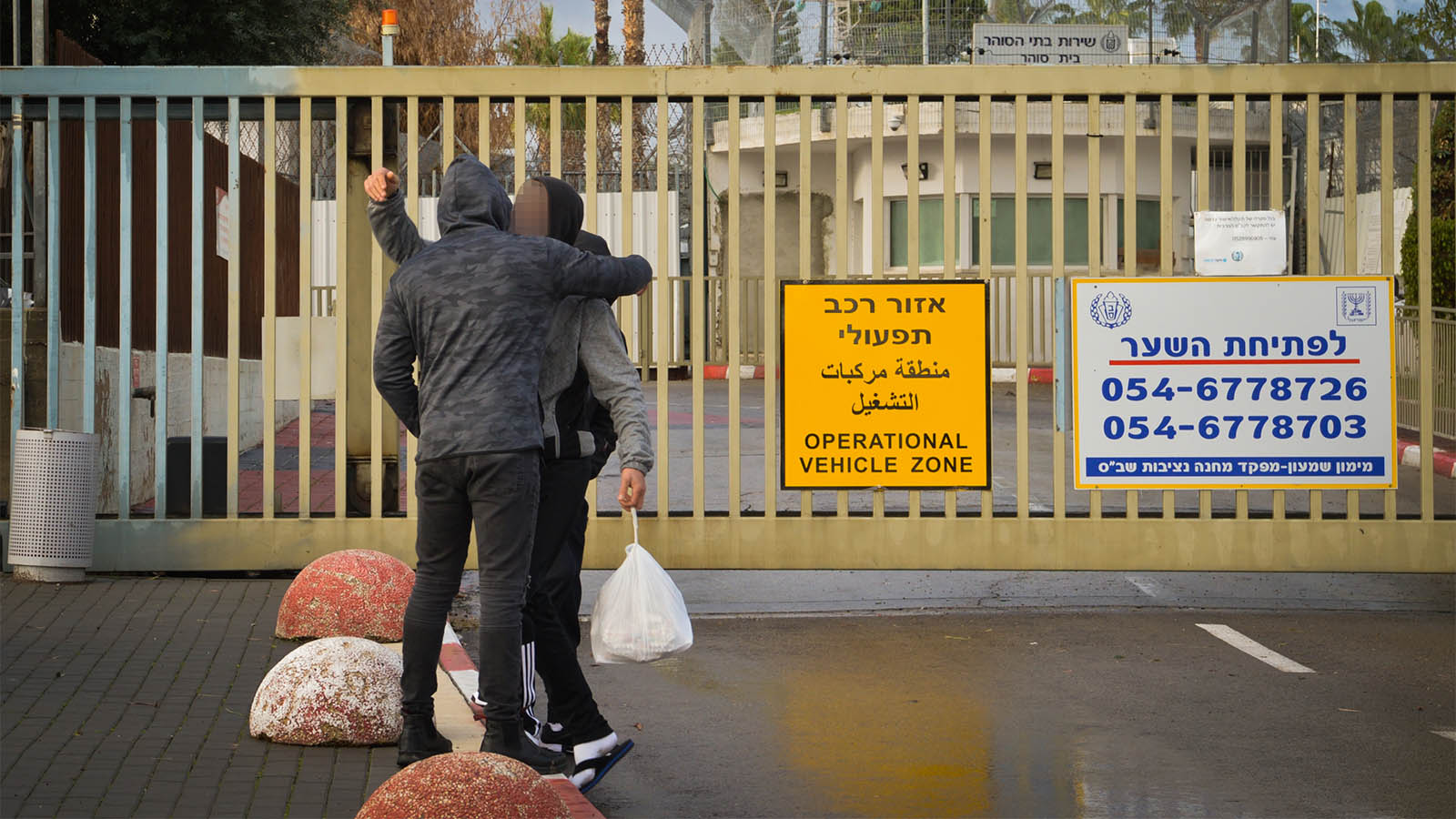
Tegania will be released from prison at the age of 46. From that moment onward, he is expected to spend many long years living in our neighborhoods, strolling our streets and parks, buying groceries at our supermarkets, and working in our workplaces. Many of us would like to wipe Tegania off the face of the earth, but this simply cannot be done. We would prefer to not have to think about him and people like him – which is possible to an extent, but we cannot erase the danger he may pose to us in the future. Is there a way to turn his 19 years behind bars into productive time? Can this time be spent in ways that actually help him repent, and more importantly, change? Will the process he will have undergone by the time he returns to our streets, be able to prevent him from doing anything like his original crime again?
I think that as a society we cannot allow ourselves to lose these people
The issue of how we ought to address crime and those who commit crimes is one of the basic cultural, moral and structural dilemmas of human society throughout history. Every society must decide which actions constitute crimes, how best to prevent people from committing them, and what should be done to those who do.
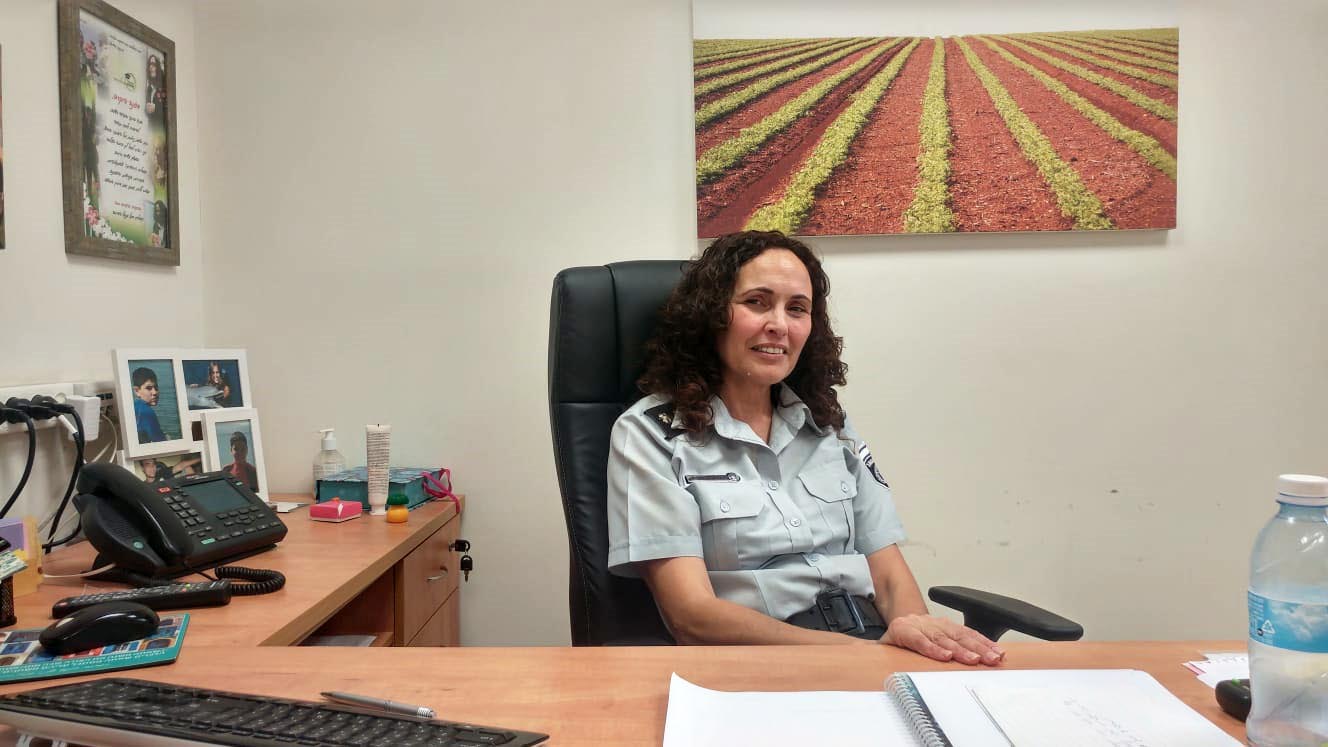
"There are certain crimes which bring up the question of whether or not a person has always been a bad person. In the end I think and believe that people have free choice, and the ability to choose," says Col. Dafna Doueb, who has led the education, rehabilitation and treatment department of the Israel Prison Service for the past two years.
"People don't always realize that they have the ability to choose. They don’t always believe in their ability to choose and often aren’t willing to do so. Sometimes they’re in survival mode, sometimes they’re deep inside their own inner turmoil. And our role here is mainly to reflect this to them and to show them the alternative. Because there's always an alternative,” she says. “Because there's always an alternative. And where there's an alternative, we come in. And also where there isn't."
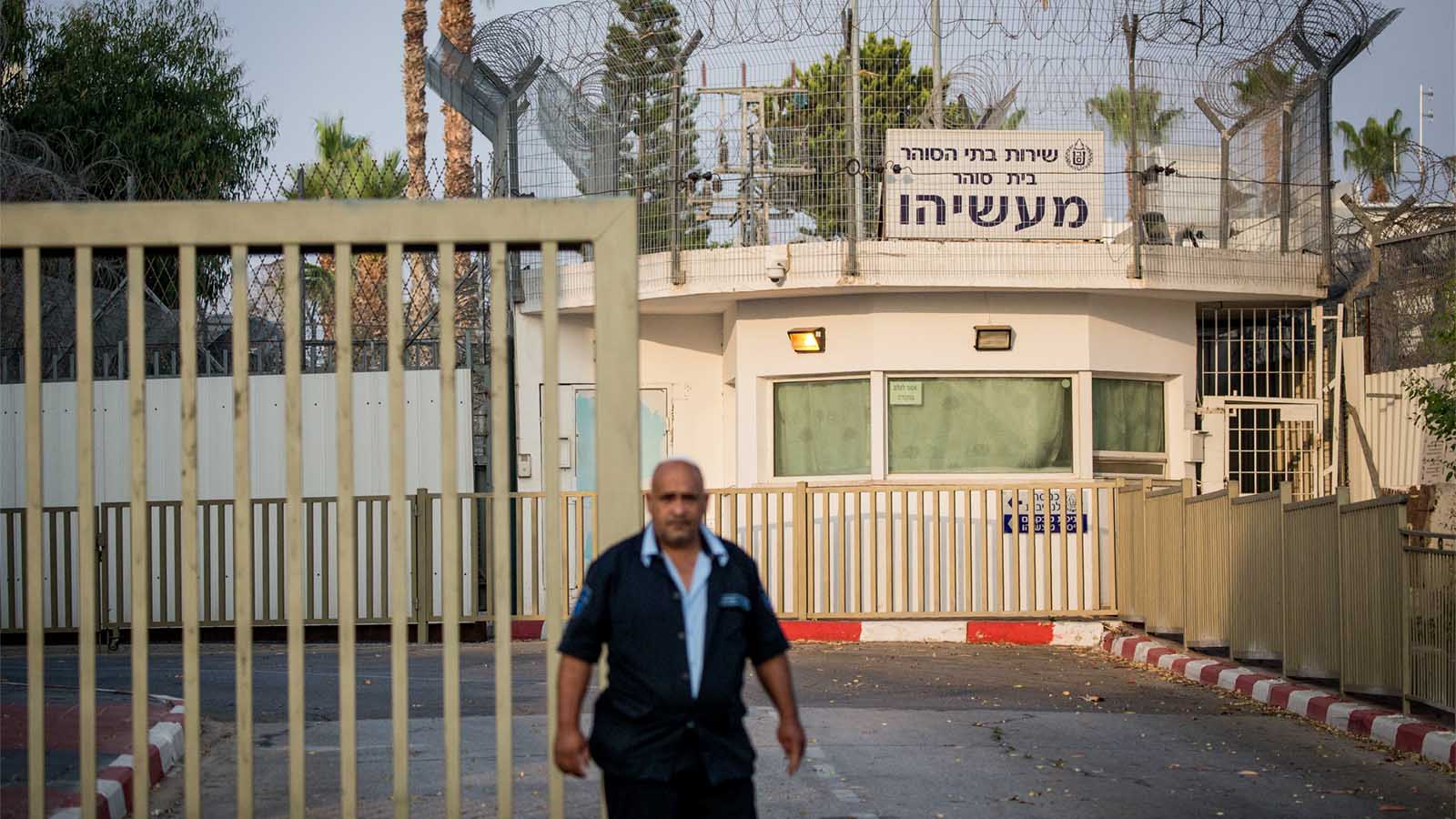
Colonel Doueb describes an extensive number of programs: rehabilitation, education with its different components – formal education and informal education – and the psychological programs that are classified as therapy.
"Within this array, our approach to each inmate's issues is a holistic one, as is our response." says Col. Doueb. "That's why there's another area that's very significant which is also incorporated – employment. We address professional training, returning to the workforce, and sometimes first-time integration into the workforce. Life skills, work skills and abilities, dealing with your employer, that type of thing."
A popular saying in Israel is that when a young Jewish man is facing trial, there is a very good chance that he will appear in court with a kippah and tzitzit, even if he is completely secular. Some add: “The bigger the crime, the bigger the kippah.” Secular Jews in Israel tend to view this phenomenon with cynicism, seeing the religious symbols as just for show, without any kind of internal process of remorse. However, according to Colonel Doueb, religion can sometime help inmates find their way to rehabilitation.
"There are many inmates who find religion as a space and a source of strength to make a personal change. Religion is a framework which imposes very clear boundaries. For inmates who come from traditional homes, it is very easy to connect to this type of change, and follow the rules about what is permitted and what is forbidden. From our point of view, we need to give them the support they need for that to work, so that the process will have religious and emotional depth," Col. Doueb says.
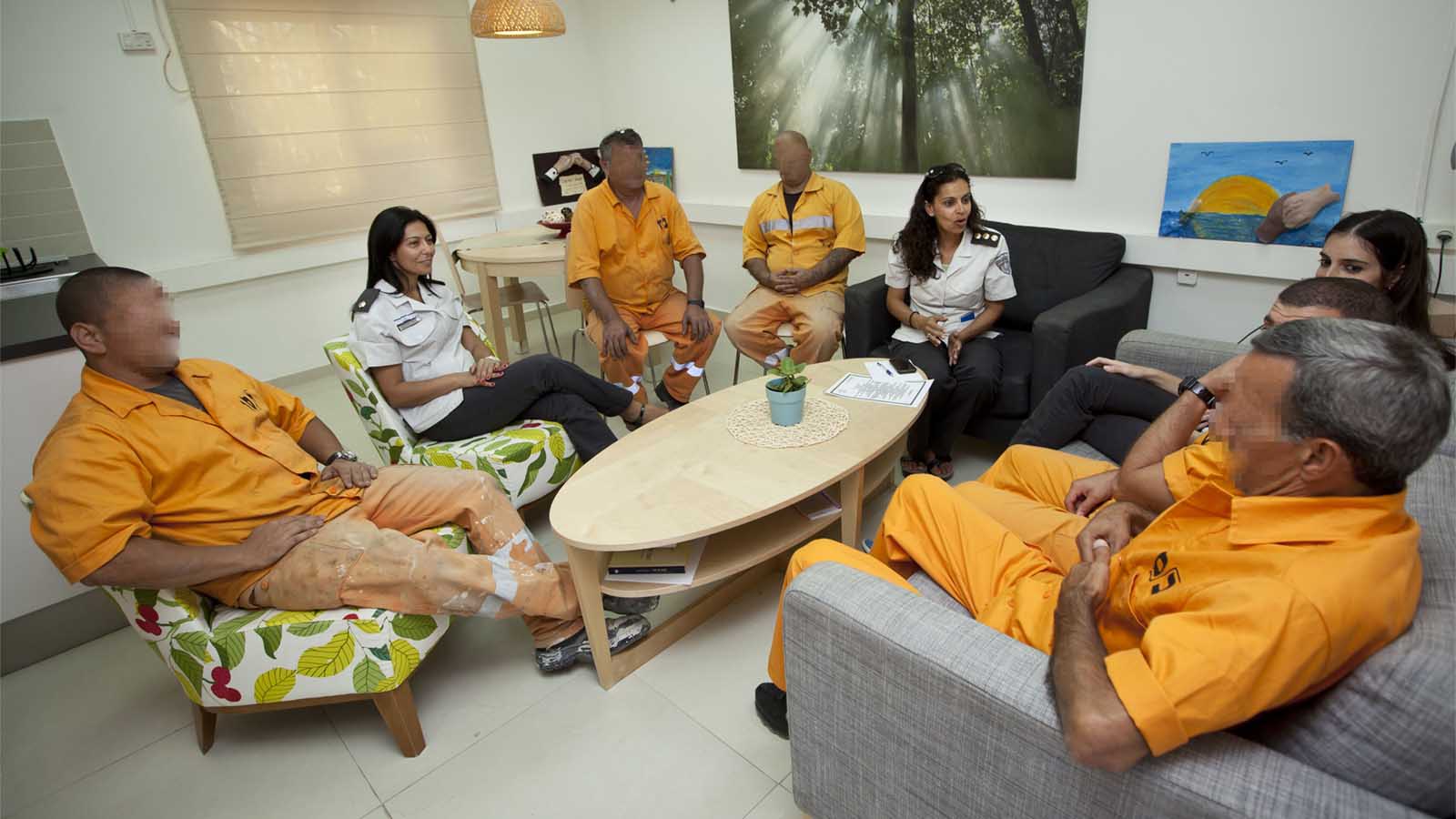
"For people who are undergoing therapy, we operate some 20 therapy departments. These therapy departments are like a therapy community, they are essentially small wings which deal exclusively with therapy,” Doueb explains. "All the inmates in the departments are in individual and group therapy; therapy is the air they breathe. Throughout the time that they're there, they talk about everything: what I did, why I did it, how it happened, what happened to my victim, and so on. And there are also a substantial number of people who undergo therapeutic processes in groups, or in other smaller-scale ways."
The issues we deal with in jail are among the most severe problems in Israeli society
Colonel Doueb tells us about the difficulties in entering a therapeutic-rehabilitative process while incarcerated, and about the obstacles which prevent additional inmates from doing so.
"In order to begin a process of rehabilitation, you must summon tremendous strength. There are inmates who might be able to get up in the morning and go study in a classroom. And that alone requires that we invest substantial effort – reaching a situation where the inmate has created a regular schedule for himself, gets up in the morning, gets dressed, shaves, showers, and goes to study in a classroom for four hours. Suddenly they have to hand in homework, to complete assignments, even if they're completing their eighth grade studies for example. Sometimes it's the first time people experience anything like it, and it's very frightcening for them."
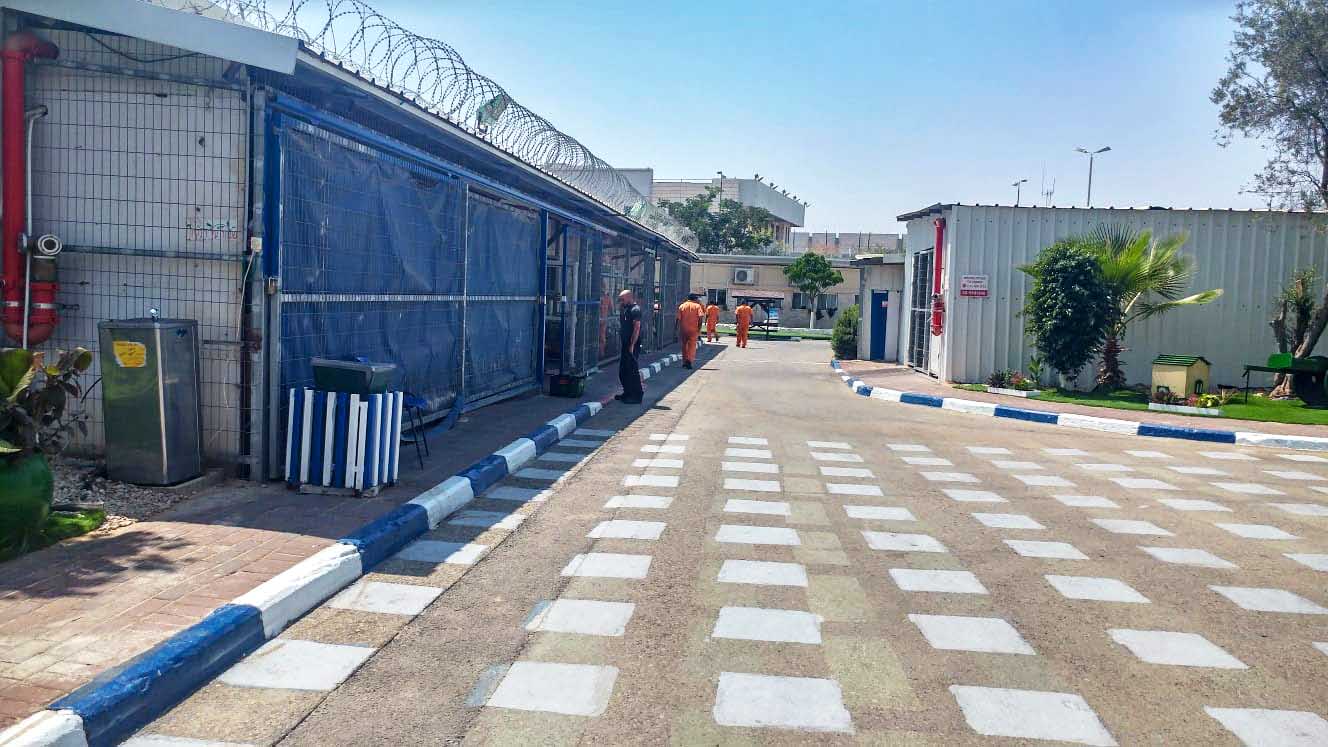
"There are some who haven't yet managed to muster the courage. They are still in the process of finding their place, of understanding what is happening to them. Sometimes they are still using drugs, or they are inmates with very serious mental health issues, for whom a process of rehabilitation entails trying to get them stabilized. The issues we deal with in jail are among the most severe problems in society. Most inmates take advantage of a significant number of the treatment programs we offer. They manage to find their place. They work, maintain contact with a social worker, they are in the rehab world.”
But there are still those for which the impressive system described above has not managed to help choose to change their ways. Colonel Doueb tells us that the staff insists on sincere regret and acknowledging responsibility for one’s past actions.
"Of course, that's the very basis of what we do here," expands Colonel Doueb. "I've got letters from inmates who have participated in workshops and written apologies to their victims, or family members whom they felt they have harmed. A real process of rehabilitation cannot occur if an inmate does not take responsibility for their crime, if they can't talk about it. If we don't deal with the crime itself, the victim, the fact that they have harmed someone, we can't go forward. They see where they have erred through this process. Without that understanding, which normally also entails regret, a truly rehabilitative process will not take place."
In response to our questioning the possibility of real rehabilitation, we received an impassioned answer: "If I had those thoughts, I think I wouldn't be able to do what I do. The Israel Prison Service invests an enormous amount of resources in prisoners. I am in a profession which at its core believes in change. And even more so when you're talking about change which entails changing a mental health situation."
Although even Colonel Doueb admits that "sometimes it's also a matter of our expectations. If I expected a certain inmate to become a completely different person from top to bottom then maybe that's not always realistic. But if I manage to take him on a significant journey, and there is continuous progress to the change, then we've accomplished something. I don't think that we as a society can allow ourselves to lose these people."
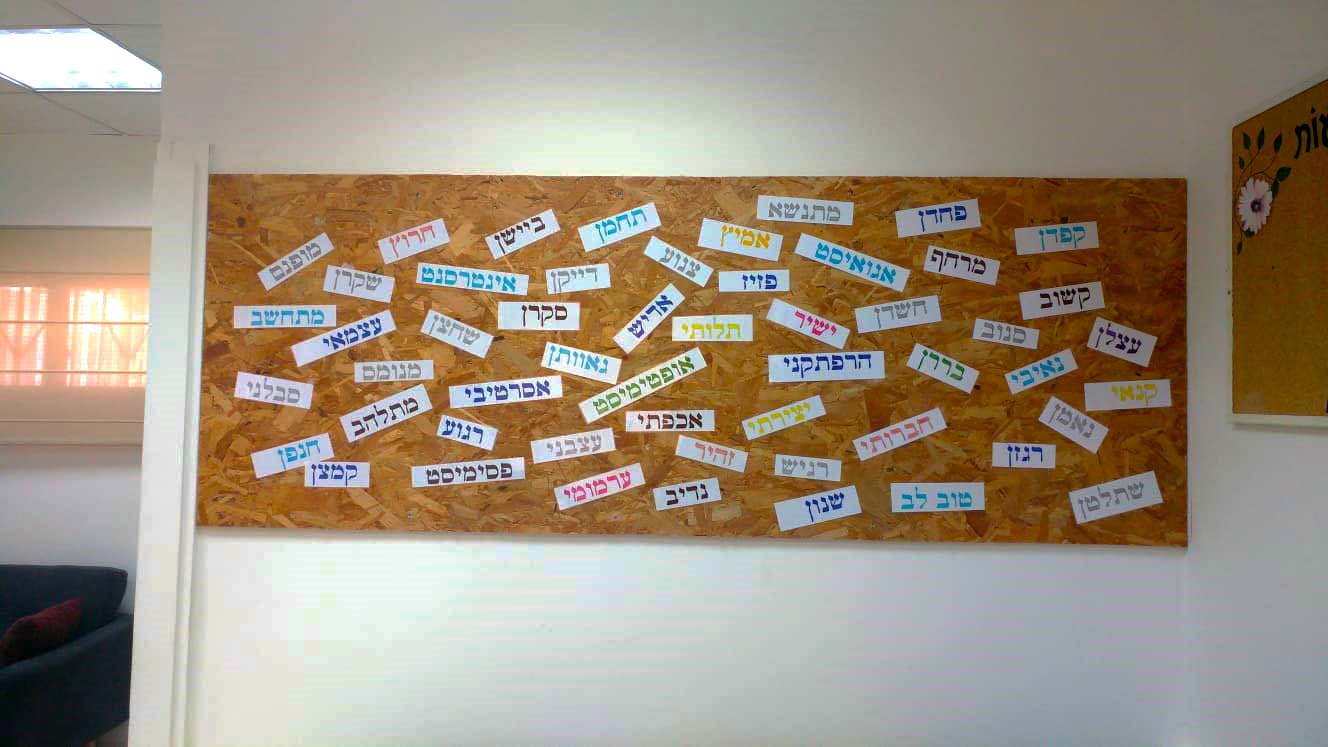
Colonel Doueb admits to us that she had had inmates where the magnitude of their actions, the atrocities they committed, made it hard for her to care for them.
"It happens. I won't give examples, but it happens. There are many cases in which it's very hard to contain the knowledge of a certain crime. We as therapeutic specialists are exposed to the indictments. They can be horrifying. And nonetheless you have to summon all of your emotional strength, not stigmatize the inmate, and see what can be treated and what can be done, and leave aside all of the horrors you read about in the indictment. There are terrible things, and there are inmates who don't even want treatment. But our profession as social workers is about caring for them. Making sure they're OK, they're alive, they're breathing. Can I say that it's easy? I remember that when I was still a student, I had nightmares from the things I was exposed to."
Our investment is really aimed at creating a situation where these people will be capable of living among us and being productive
Colonel Doueb takes a moment before she relates to the issue of rehabilitation for each and every inmate, even the those who committed truly horrifying crimes.
After a brief silence, she answers, "I believe that the extent of change is what varies from person to person. It’s a function of their personality, from their background, from the type of crime. There is a certain extent of change that can be achieved, we can typically identify the extent, and our response will be adapted to fit that expectation. I believe that every change, and every step we take is significant. If a person has committed a serious crime, and then is released understanding that they have done something wrong, and we haven't maximized the change for all sorts of reasons, we have still accomplished something. We have still released someone who will maybe do less damage to society in the future."
"If we managed to create a situation where he's outside for five years, and in those five years he's an active, productive person who is integrated into society and has a job, and functions – society has benefited from his abstention from criminal activity during this time, not to mention the economic benefit. Our investment is really aimed at creating a situation where these people will be capable of living among us and being productive, rather than people who have come to this world and achieved nothing. I think that the main feeling of the people who work here is that we have a direct impact on the face of Israeli society as it exists and on what it should be."






